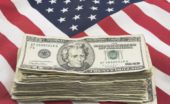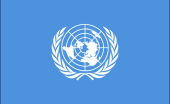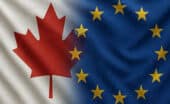Molly Minturn - My family is heartbroken to share that my father died in surgery on Monday, Feb. 10. It…
Wednesday Night #2082
Written by Diana Thebaud Nicholson // February 9, 2022 // Wednesday Nights // Comments Off on Wednesday Night #2082
We have lost another good friend and former Wednesday Nighter. A man of so many accomplishments, but always ‘A rough-weather friend’: Donald Johnston, former MP, dead at 85
Welcome Peter Berezin! Lots to talk about. The highlights of Peter’s most recent Strategy Report: A Correction Not A Bear Market, include
• The selloff in equities since the start of the year marks a long overdue correction rather than the start of a bear market.
• Stocks often suffer a period of indigestion when bond yields rise suddenly, but usually bounce back as long as yields do not move into economically restrictive territory.
• BCA’s bond strategists expect the 10-year yield to rise to 2%-to-2.25% by the end of the year, which is well below the level that could trigger a recession.
• While valuations in the US remain stretched, they are much more favorable abroad. Investors should overweight non-US markets, value stocks, and small caps in 2022.
• Go long homebuilders versus the S&P 500. US homebuilders are trading at only 6.5-times forward earnings and will benefit from tight housing supply conditions and a moderation in input costs.
Stephen Poloz on economic dangers ahead, staying positive and lessons from Star Trek [and West Wing]
The former Bank of Canada governor [and a predecessor of Peter as Wednesday Night’s resident BCA expert] talks with Marie-Danielle Smith about his new book [The Next Age of Uncertainty, a primer on the economic volatility ahead.], the politics of inflation, and how a near-death experience changed his outlook on life.
Paul Krugman asks When Do We Need New Economic Theories? and concludes “The moral of this discussion isn’t that the mainstream is always right, or that you should listen only to people with the right formal credentials. It is, instead, that new ideas should be judged as ideas, not by whether those proposing those ideas talk a good game. We all love tales of brave innovators challenging a stodgy establishment, but that very love opens the doors for hucksters — who may be fooling themselves, as well as others — who actually have nothing to offer but a good story line.” In other words, the need is infrequent.
Meanwhile, in A Balanced Response to Inflation, Joseph Stiglitz argues “Although it is anyone’s guess what will happen next with inflation, the data show that there is no reason to react rashly with large across-the-board interest-rate hikes. The economy is working through an unprecedented transition that could ultimately be a boon for workers; but only if policymakers let the process play out.”
It will not have escaped your attention that we are not huge fans of cryptocurrency and were therefore not surprised when three weeks ago Crypto collapse erased more than $1 trillion in wealth, forcing a reckoning for everyday investors. We trust that investors will be suitably wary of the announcement that Blackrock is preparing to offer a cryptocurrency trading service to its investor clients.
One reason we are deeply suspicious of cryptocurrencies is the number of unsavoury characters drawn to this, e.g. Experts Raise Warnings About Steve Bannon’s New Cryptocurrency and now we learn the Ottawa truckers protest has turned to cryptocurrency for fundraising – a natural fit with the cause because some cryptocurrency proponents espouse anti-establishment views and push for a financial system detached from governments and central banks, according to cryptocurrency experts.
Ah yes, the Truckers. Canada is now in the news worldwide. The NYT has been running live coverage!
Whose freedom is the ‘freedom convoy’ fighting for? Not everyone’s
No longer limited to the ‘occupation’ of Ottawa, the Anti-vaccine mandate protests have spread across the country, crippling Canada-U.S. trade. The blockade of the Ambassador Bridge affects a quarter of all Canada-U.S. trade, while the Coutts, Alberta, port of entry, which has been largely impassable for nearly two weeks, is a major trade hub for millions of dollars worth of agricultural products like meat and feed each day.
Truckers lay siege to the city! What’s it mean? What’s next? On this week’s Diplomatic Community Jeremy Kinsman and Larry Haas agree that the Trucker convoy and the copy-cat versions it has spawned as far away as New Zealand are not about vaccines or mandates, but symbolic of a much greater socioeconomic movement driven by the sentiment that governments are not listening to the people. But which people should they listen to?
Andrew Caddell‘s excellent piece in The Hill Times is a must-read. We can’t ignore the lessons of the Ottawa occupation; the sub-head is The lessons learned will touch on the need for better intelligence, planning, and response. But it should move us to develop a greater understanding of where we are, and who we are as a country He posts the entire text of his columns on his Facebook page.
It’s not that we do not deem the Russia/Ukraine story critical, but the convoy(s) are much closer to home. The BBC tells us on Wednesday evening that Russia sees room for diplomacy, while at almost the same hour, The Guardian says Belarus military drills to begin as Russia ratchets up Ukraine tensions and warns that Emmanuel Macron’s remarks on Russia set alarm bells ringing: French president’s comments after Ukraine talks with Vladimir Putin should concern Nato alliance. Anton Troianovski writes in the NYT that The Ukraine crisis is here to stay. “President Vladimir V. Putin of Russia is increasingly staking his legacy on reversing Ukraine’s pro-Western shift. Even if he does not order an invasion this winter, he is making clear that he will keep the pressure on, backed by the threat of force, for as long as it takes to get his way.in the New York Times, Putin Is Operating on His Own Timetable, and It May Be a Long One. The standoff between Russia and the West over Ukraine could turn into a drawn-out and dangerous diplomatic slog toward a difficult settlement.”
Varia
A lovely tribute
An Unlikely Champion Racehorse Who Charmed Everyone
Alphabet Soup was one of those cheerful, upbeat horses—always in a good mood, never of a mind to bite you.
How many have you seen? Or do you want to see?
Where to watch this year’s best-picture Oscar nominees
Unintended consequences
Bloomberg tells us that “A new study finds that Confederate addresses sell for 3% less on average than homes of similar size and age on nearby streets that aren’t named for secessionists. The effect is more pronounced in states outside the South, and in areas with higher shares of Black residents, highly educated residents and Democratic-voting residents. Conversely, it’s far more muted in regions where Confederate flags still fly. Homes on Confederate streets in states with the most Lost Cause memorials – Alabama, Georgia, North Carolina, Texas and Virginia – may even fetch slightly higher sales”.
SC scientist’s research at Chernobyl faces trouble if Russians invade Ukraine
Mousseau is widely quoted in news stories and documentaries about the long-term harm the Chernobyl disaster has brought to animals. He has been featured in an array of national publications, including The New York Times and The Washington Post, and national television broadcasts about his experiences at Chernobyl.
News and reviews of the Olympics are mixed. The athletes are, of course, amazing. Would that the IOC and the Games organizing committee were equally so. However, Ian Bremmer writes: “While things could still go south, the Games seem to be turning out quite nicely for China.” Business as usual despite pandemic, geopolitical risks
And we must not forget Peng Shuai emerges at Olympics, gives controlled interview
Long reads
George Soros: China’s Challenges
The year 2022 will be a critical one in the history of the world. …
In an open society, the role of the state is to protect the freedom of the individual. In a closed society, the role of the individual is to serve the rulers of the state. As the founder of the Open Society Foundations, obviously I am on the side of open societies. But in a world teetering on the edge of military aggression, both in Ukraine and in Taiwan, the victory of open societies cannot be taken for granted. So, the most urgent question now is: Which system will prevail?
Putin’s case for invading Ukraine rests on phony grievances and ancient myths
The Russian leader doesn’t want to believe Ukraine exists. But that’s not how modern nations work.
The Real Crisis of Global Order Illiberalism on the Rise
Trump may have lost the presidency in 2020, but the liberal order remains under threat. If anything, recent events have underlined the magnitude of the challenges it faces—and, most important, that these challenges are only one manifestation of a much broader crisis endangering liberalism itself.
Lighter moment
The Guardian has launched a light-hearted contest for the headline of the month.
Current candidates include
1. French bakers in pain over cut-price supermarket baguettes (Claire Hu with a nice jeu de mots)
2. Straws buried in field forever (Warren Murray can’t resist a Lennon-McCartney reference) *
3. There is a fight that never goes out (Ed Latham riffs along with Morrissey and Marr)
4. Mirror signal manoeuvres space telescope into focus (Simon Usborne at the wheel for this one)
5. Suspect leaves digital clue behind for police (Geoff Moore peps up a curious crime story)
6. Minister uncowed by flak over call to eat less meat (Suzanne Warr gets readers in the moo-d) *
7. New year’s Yves: museums mark 60th anniversary of Saint Laurent debut (Ian Gunn with a January 1 classic)
8. Remote working: 100 apply for job of running Hebridean guesthouse (Roger Ridley with the perfect kicker)
(* – print headline – did not appear on web. See image for context)



